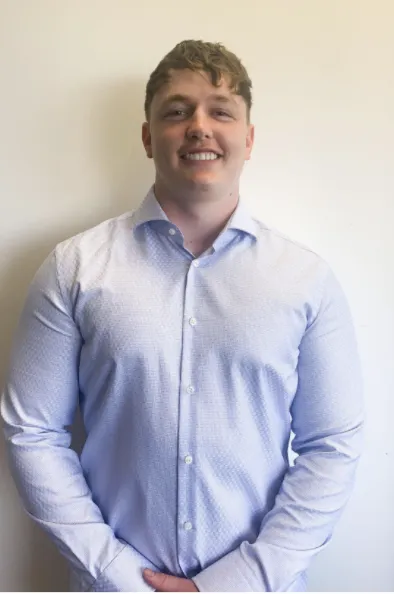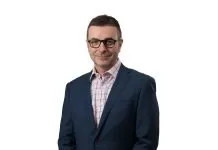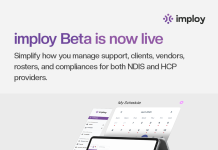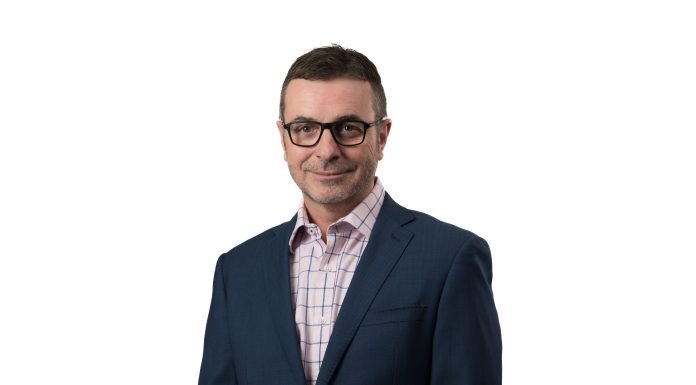In this Q&A Inside Ageing (IA) spoke with Kyle Hunt, who founded the Health Care Providers Association (HCPA) in 2018, building the business to over 30 staff members today!
HCPA works with aged care, disability (NDIS) and specialised disability accommodation providers to help secure government funding, helping secure more than $2.8 Billion to date.
Kyle is now working to support the system that supported him as someone who grew up in foster care.
IA: Congratulations Kyle on what seems to be quite a success story with your business. From a standing start in 2018 to more than 30 employees today is impressive. Tell us a little bit about your business and some of what you’ve been able to achieve over the last few years.
Kyle: I launched Health Care Providers Association in 2018, with the aim of revolutionising the way individuals and businesses gain access to government grants and healthcare funding schemes. I was driven to launch my business following my upbringing in foster care, with a goal to make a better life for myself and support others in accessing funding, giving back to the system that gave so much to me.
I’m proud to say that HCPA has changed the lives of millions of vulnerable people who were just like me, along with the lives of the elderly, people living with disabilities and the wider vulnerable communities by working to increase the support services and available funding to those who need it most.
Since launching, I have seen my business expand into a team of 30 and turn over more than $4.7million yearly, having tripled our MoM revenue in the last three months alone. Along with my excellent team, HCPA has connected Australians with over $2.6 billion in funding to help their healthcare businesses succeed.
IA: Much has been written about the need for aged care to grow in order to meet the increasing demand. An often-quoted figure is that the sector will need an extra 1 million workers by 2050 to meet that demand. How are you helping grow the capacity of the sector to do this and have you got some examples you can share?
Kyle: There is definitely added pressure on the aged care sector and a lot of HCPA’s work is centered around supporting businesses to offer such services.
HCPA recognises that a key challenge of starting a business in the healthcare industry is overcoming staffing expenses. These costs can be daunting, however, the benefits of having educated, experienced and well-trained employees are invaluable, especially for an industry where the health of individuals is on the line. This is where government funding becomes significantly important. HCPA is able to support and aid businesses in building a strong staff force that will support the business through growth and add immeasurable value to clients.
HCPA is helping grow the capacity of the sector through finding funding opportunities for such businesses that are struggling to meet staffing expenses. We provide complete assistance in completing the application process and have helped 8,491 providers to date.
IA: What is your advice for aged care or disability services providers who want to expand their business and potentially tap into some of the grants that may be available? I would imagine there would need to be significant due diligence done internally with respect to planning for such expansion ahead of any grant application.
Kyle: My first tip of advice is to speak with someone from HCPA, we are experts in this field and there are endless funding opportunities available. However, in light of this, it is extremely important that such businesses have a key direction for their expansion.
I believe the key success of HCPA that led to growth was how much I prioritise culture and value my staff. Something that has always left me looking for answers is why businesses seem to prioritise such micro-management and strenuous KPIs over culture. It’s my strong belief that small businesses and startups are only going to be as good as their staff. Hence my advice to these businesses is that they must create a long term vision that their staff feel inspired to be a part of, especially where staff are required to be educated on something as specialised as healthcare. Providing more flexibility and encouraging bonding activities has seen my staff pushing themselves to self-educate and grow with the business.
My advice: in the face of rapid growth and success, it is imperative that businesses do not lose vision of the customers’ overall outcome. Culture is key and the benefits are felt at each touchpoint, through to the end-user.
IA: As previously mentioned, staffing remains one of the key areas the aged care sector, in particular, is struggling to attract and retain people. Are the current grants able to offer help in this area?
Kyle: Current grants make it possible for businesses to attract and retain staff as they support in providing attractive and secure wages. However, as I said above, it’s the businesses responsibility to create a long term vision that such skilled and valuable staff want to be a part of.
At HCPA, I have provided flexibility for staff and regularly encourage bonding activities. With such support for them, I have seen my staff become more invested in the business and constantly push themselves to self-educate and grow with the business.
Whilst funding is beneficial to attract staff through wages, it’s really up to the business to create a workplace and culture that staff want to be part of.
IA: Your business name has the word association in it. Tell us a bit about how providers can work with you and the nature of becoming part of your association.
Kyle: HCPA is the go-to consultancy in Australia because of the knowledge we provide our clients. Any consultancy can assist with business registrations, but they don’t possess the same level of passion we have surrounding the NDIS scheme and running government-funded businesses.
We go above and beyond for our clients and build long term relationships with them. We provide them with skills and information they can utilise not only throughout the registration process but also once they are actually running their business.
IA: It’s refreshing to find someone such as yourself coming into the sector as a young entrepreneur and making change. What are your thoughts on other entrepreneurs coming into the sector as service providers and the potential to launch a business? How feasible is this when you’re up against established entities?
Kyle: There is so much potential for entrepreneurs to come into the sector and launch a successful business. HCPA exists as it makes such a business feasible, as without government funding it’s nearly impossible for new service providers to compete with established entities.
I find it interesting looking at mindsets around launching a business; in fact, it seems a lot of people are scared to take the leap. Luckily, in Australia, the possibilities are endless for small businesses in the healthcare sector, particularly when bolstered with knowledge of the abundance of government funding available.
In Australia, there is over $200 billion in funding available for small businesses in the healthcare sector; this support is often the difference between companies who are struggling and those who are excelling. It’s this knowledge of funding available that allowed HCPA to reach the trajectory it has, supporting many small businesses to enter the sector. Once funding is secured, growth is enabled.
IA: What’s next for Health Care Providers Association and where do you think you’ll be in the next 3 years?
Kyle: HCPA is ready to continue to grow, we have such a strong and dedicated team that is extremely excited about what’s to come for our business.
Looking ahead, HCPA is exploring vaccine licensing, following a rapid increase in demand. We then have our sights set on international expansion, to broaden their impact on the healthcare sector.
IA: Thank you










